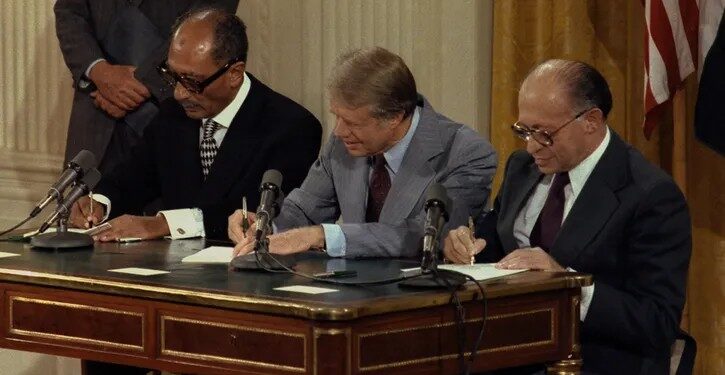Egyptian President Anwar Sadat and Israeli Prime Minister Menachem Begin were jointly awarded the Nobel Peace Prize in 1978 for their groundbreaking efforts to end decades of hostilities between their two nations. The award recognised their courage in pursuing peace through the Camp David Accords, a framework that laid the foundation for the first peace treaty between Israel and an Arab country.
Historic breakthrough in Middle East diplomacy
The Nobel Committee’s decision marked a turning point in Middle Eastern diplomacy. For the first time since Israel’s creation in 1948, an Arab leader had formally recognised the Jewish state’s right to exist. Sadat’s dramatic visit to Jerusalem in November 1977, where he addressed the Israeli Knesset, stunned the world and demonstrated a bold willingness to negotiate directly. Begin, leading a government historically opposed to territorial concessions, also made significant compromises that would later culminate in the 1979 Egypt–Israel Peace Treaty.
Camp David: twelve days that changed history
The Camp David negotiations, hosted by US President Jimmy Carter at the presidential retreat in Maryland, spanned twelve tense days in September 1978. The result was two key agreements: one outlining the framework for peace between Egypt and Israel, and another setting out principles for Palestinian self-government in the occupied territories. While the latter stalled, the former led to Israel’s complete withdrawal from the Sinai Peninsula, which it had occupied since the 1967 Six-Day War.
Reactions and regional fallout
Although hailed internationally as a diplomatic triumph, the peace deal provoked outrage across much of the Arab world. Egypt was expelled from the Arab League, and Sadat faced mounting domestic criticism. Nonetheless, the agreement ended 30 years of war between Egypt and Israel and opened the door to limited cooperation and trade. The symbolism of two historic enemies shaking hands underlined the potential for dialogue in one of the world’s most intractable conflicts.
Legacy of courage and cost
Sadat paid a heavy price for his pursuit of peace. In 1981, he was assassinated by Islamist extremists opposed to the treaty. Begin, meanwhile, struggled with political divisions at home but maintained the peace agreement, which endures to this day. The Nobel Peace Prize remains a testament to both leaders’ bravery in defying domestic and regional pressures to seek reconciliation.
Newshub Editorial in Africa – 27 October 2025



Recent Comments